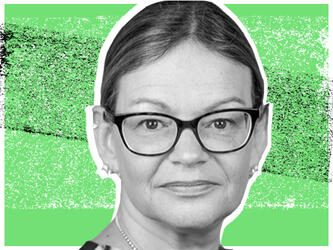Checking your privilege: India’s middle class consumers

In July 2023, I headed to India for an ethnographic project, spending time with people in their homes, understanding their lives and attitudes, and exploring why they buy the premium version of our client’s product.
We didn’t have a specific affluence quota, but we anticipated that we would be speaking to those on the more affluent side, able and willing to spend more for a premium product.
I would be moderating, because I don’t see myself as British, but as ‘tricultural’, connected with my Indian, African and British roots. I was born in Malawi, grew up in the UK, and my family are from India. I may only speak one language, English, but I code-shift with my accent, body language and cultural references. I know how to spot and lean into cultural differences and connect with people from many walks of life.
Unlocking perspectives
Our first ethnography was with Sundharani. We headed to a less affluent part of the city, walked past a slightly battered Maruti Swift car in the car port, and headed upstairs to the second-floor apartment. We were greeted by Sundharani’s husband, and welcomed into a very small, tidy front room. All the while, my heart was sinking. I thought: “Oh no, have we got a mis-recruit here?”
Then we began talking and observing. We looked at the photos on the wall, from her work trips to the US and the UK. One of Sundharani’s life goals is to live abroad, and she is working hard towards this, hoping to be posted with her company in the US. We talked about her car. She is the first person in her family to own a car and is proud to be able to drive her family and visitors from her home village around the city when they visit.
Her parents and husband have always supported her and encouraged her to strive for more. She is inspired by her boss, whom she quotes regularly. He tells her that it is important to pay more for premium products because they will be good quality.
Challenging biases and embracing humility
I was humbled. Sundharani was not a mis-recruit, she was exactly the right customer for the premium product, and I had made some very swift judgements before I had even met her.
Each day, we visited more people like Sundharani, striving to better themselves and their family situation – progressive in their thinking, proud to be able to bring comfort to their parents in their twilight years, and seeing education as the gateway to advancement.
It dawned on me that this is the rising middle-class of India. I’ve read The Economist articles on the topic and worked on global insight briefs that include middle-class India and their growing disposable incomes. Spending my whole life going back and forth to India, and having lived there for a year, I thought I understood what the rising middle-class of India is – but, the reality is, the India I know and the circles I move in are very different. I cannot fully understand every stratum of Indian society, and I shouldn’t, either. My role is to enter projects and people’s homes without bias or judgement.
As I boarded my plane back to the UK, I had time to reflect, recognising that, with years of international insight experience, it’s important to continue to learn and evolve. I have two very simple takeaways:
- Check your biases: We all have them. Our upbringing and the cultures and influences that have shaped us all create biases. Even being ‘from’ a culture is a bias in itself. This is not a bad thing; it’s inevitable. It is crucial to acknowledge and set aside preconceived notions that may cloud our understanding of diverse populations. In the corporate boardroom, where our voices represent participants, recognising and mitigating biases is essential for unbiased insights.
- Stay open: Be open to change, new ideas and truths. Cultural landscapes evolve, and what held true in the past may not align with present realities. Remaining receptive to change and new perspectives allows us to uncover opportunities that can help our clients make an impact.
I encourage everyone to think about and recognise your own biases, because we all have them. Stay open to new possibilities because that’s how we get to truly great insight.
Dinisha Cherodian is strategy director at BAMM

We hope you enjoyed this article.
Research Live is published by MRS.
The Market Research Society (MRS) exists to promote and protect the research sector, showcasing how research delivers impact for businesses and government.
Members of MRS enjoy many benefits including tailoured policy guidance, discounts on training and conferences, and access to member-only content.
For example, there's an archive of winning case studies from over a decade of MRS Awards.
Find out more about the benefits of joining MRS here.












1 Comment
Stephen S
7 months ago
Really interesting article Dinisha, there India emerging Middle classes are so far from the western middle classes, and as you say it’s so important to get those nuances right. Just because corporate UK FMCG insights teams are UK middle classes, it doesn’t mean we should relate to the singular global growth opportunity for businesses! Great article. Thank you!
Like Reply Report